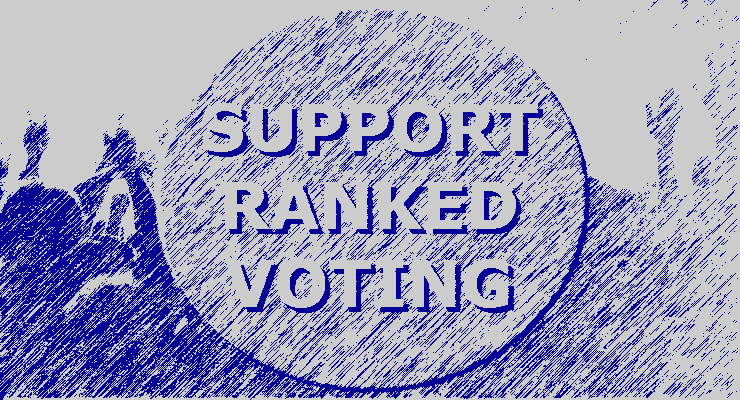
A change to ranked voting and away from the universally used plurality voting system is beginning to be seen by many in both parties as a potential gamechanger. There is good news coming on this front from an unexpected corner. According to a really interesting article at Outside The Beltway written by Doug Mataconis:
Kansas Democrats have taken the steps to reform the way that they participate in the process of nominating a Presidential candidate, and they’re both steps in an interesting and potentially positive direction:
If you’re a Kansas Democrat or become one before the 2020 election, it will be a lot easier for you to help pick the party’s presidential candidate.
Last week, the state party submitted its plan to the Democratic National Committee to ditch Kansas’ traditional caucus system in favor of a primary election with ranked-choice voting.
Kansas Democratic Chairwoman Vicki Hyatt said she thinks the new system will make it easier to vote and increase Democratic turnout. “I’m hoping it will generate a lot of energy,” she said.
See full story here. Other states and localities that have recently seen legislation proposed to make the switch to ranked choice voting include Connecticut, Vermont, New Hampshire, Massachusetts, New Jersey, New York City, Baltimore, and at least two cities in Utah. Click those links for the latest related Democracy Chronicles coverage!
So what is ranked choice voting? According to Democracy Chronicles’ friends at at the nonpartisan nonprofit FairVote, an organization with its headquarters in Takoma Park, Maryland:
Ranked choice voting (RCV) makes democracy more fair and functional. It works in a variety of contexts. It is a simple change that can have a big impact. With ranked choice voting, voters can rank as many candidates as they want in order of choice. Candidates do best when they attract a strong core of first-choice support while also reaching out for second and even third choices.
When used as an “instant runoff” to elect a single candidate like a mayor or a governor, RCV helps elect a candidate that better reflects the support of a majority of voters. When used as a form of fair representation voting to elect more than one candidate like a city council, state legislature or even Congress, RCV helps to more fairly represent the full spectrum of voters.
Leave a Reply